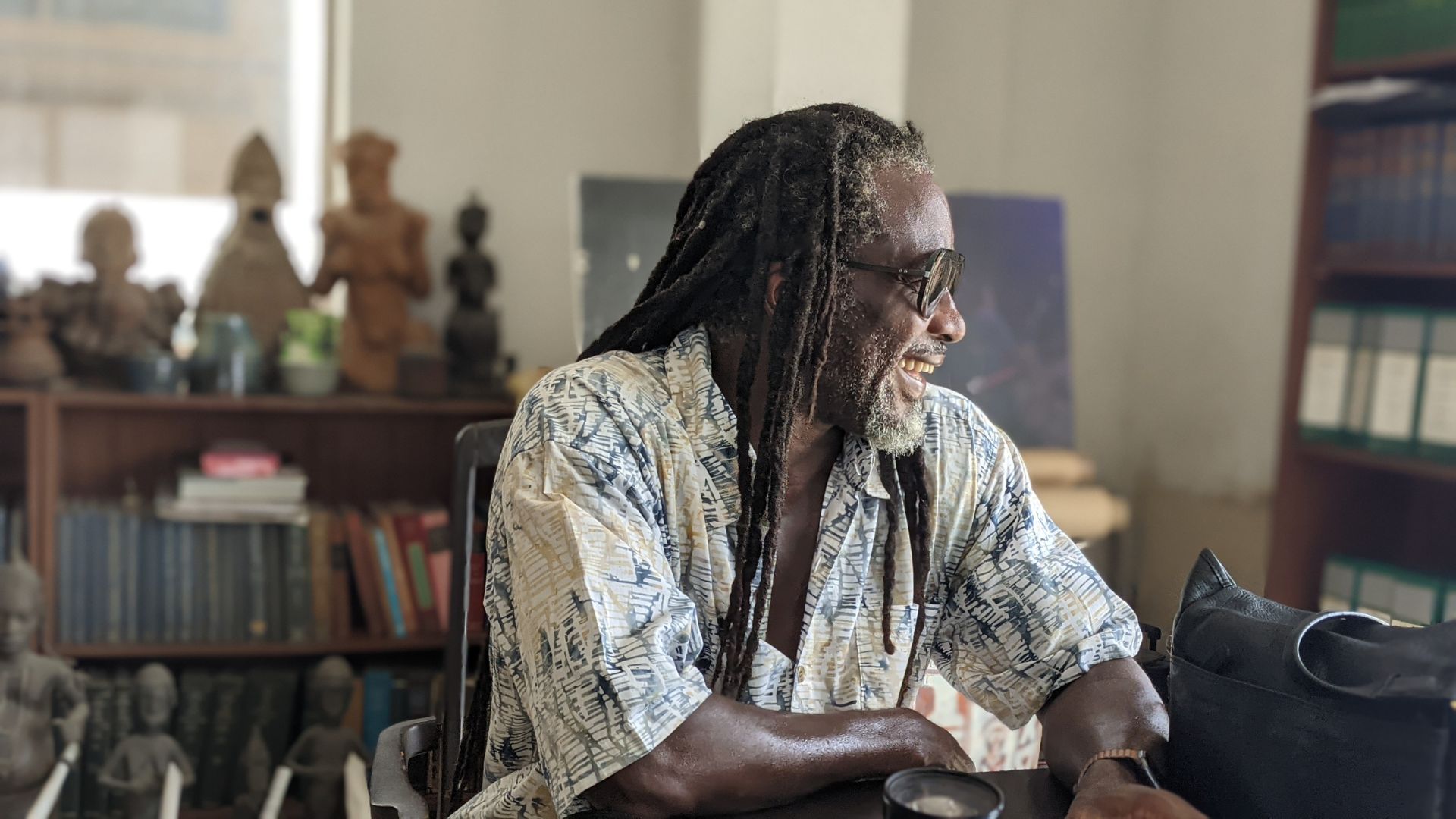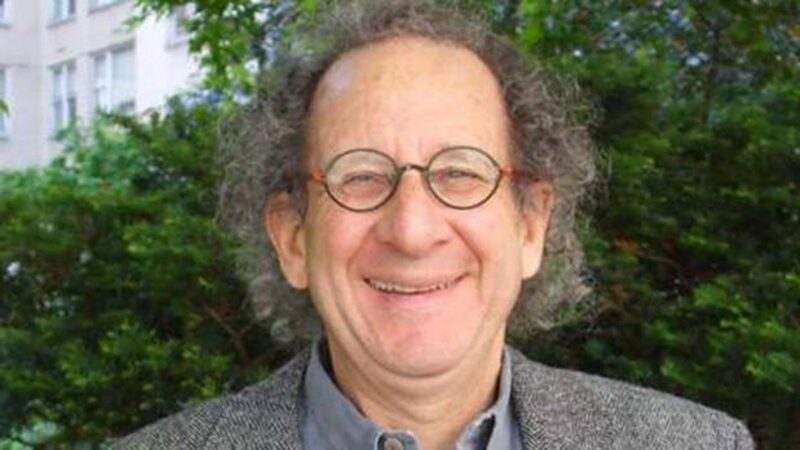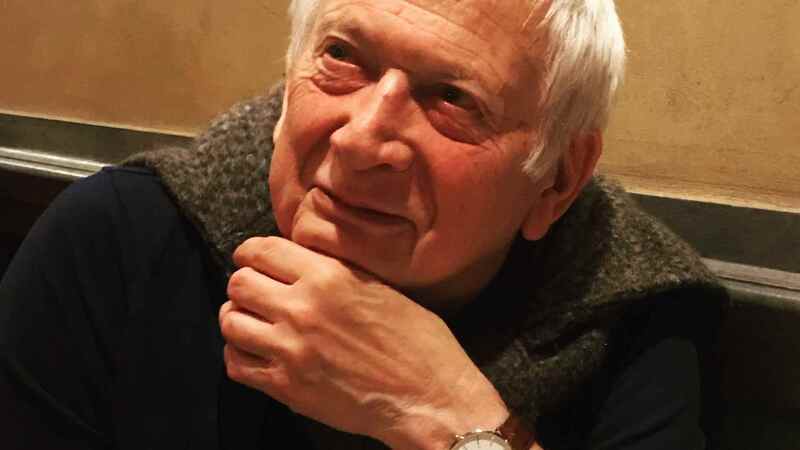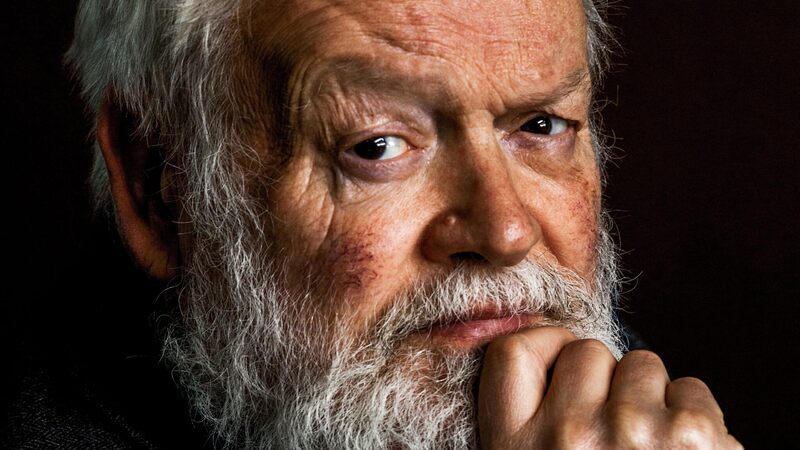You are viewing your 1 free article this month. Login to read more articles.
Obituary: Biyi Bandele
Biyi Bandele died on 7th August in Lagos. He was 54 years old, the cause of death unknown. Heartfelt tributes are pouring out from friends and colleagues in the Nigerian literary and film communities and Brittle Paper assembled a chorus of 100 African Writers celebrating Biyi Bandele’s life and work.
Biyi all-too-recently said in an interview: “I consider myself to be a storyteller. I use all sorts of media, but I am first and foremost a writer.” And this is what Biyi had been hoping for years, for the literary establishment and readers worldwide to celebrate the blazing wit, unique beauty, pulsing vitality, stunning virtuosity in Biyi Bandele’s writing, and to recognize him as one of the brightest stars of postcolonial literature.
It just occurred to me that I’ve been blessed to know Biyi longer than any other writer – since 2007, when I was handling translation rights to his novel, Burma Boy (Vintage). I will never forget how electrified I felt when Biyi’s riotous voice and characters leapt off the pages, and I soon sold Burma Boy into seven languages. I was fascinated by the historical importance and authenticity, having never before known about Nigerian soldiers fighting in WWII for the British army. (Biyi spent months researching the archives in the Imperial War Museum while also wanting to share the experience of his father who had been conscripted and sent to the jungle in Burma as a teenager and returned home traumatised with PTSD). Nor will I ever forget how dazzled I felt in each meeting with Biyi. His smile and voice could light up the dimmest room.
Burma Boy received rave reviews, but I never understood why it didn’t win prizes, why there were no major interviews or events, why it is not cherished as a classic of British and African literature. To the rising generation of Nigerian writers, readers and artists, Biyi is revered as an icon, but not in Britain, his home since 1990 when at age 22 he came to London on a scholarship, after his play "Rain" won the 1989 International Student Playscript Competition. He wrote plays staged at the Royal Court Theatre and performed by the Royal Shakespeare Company, but his four brilliant, trailblazing novels are barely remembered: The Man Who Came In From The Back of Beyond, 1991, and The Sympathetic Undertaker and Other Dreams, 1993, both published in the Heinemann African Writers Series; The Street, 1999, inspired by his beloved community in Brixton; and then Burma Boy in 2007.
While he was writing Burma Boy, Biyi also poured his creative energies into writing and directing his first feature film, based on Chimamanda Ngozi Adichie’s novel Half of a Yellow Sun (Fourth Estate). A book or film could be made about Biyi’s epic struggle to finish this production which he has described as “a brutal, horrific battle,” taking “seven years to overcome unrelenting racism every step of the way.” I could see in recent conversations how often racism had pushed against him, closing doors in London that should have been opened for a writer and director of his immense discipline and talent.
The happiest reunion of my career came in 2019, after Biyi wrote to tell me that he wanted me to be his agent: “Now that I was working on a new book I thought of you and the fact that you did more for Burma Boy than anyone else.” And then the day in June 2021 when we video-met with Hannah Chukwu and she told us how passionately she and her Hamish Hamilton team believed in Biyi’s writing and his ambitious vision for his new work-in-progress, Yoruba Boy Running, this was the joyful start of all we’d been hoping to achieve the past 13 years.
Chukwu said: "Biyi was an incredibly gifted writer, writing deeply important work. I have felt enormously privileged and proud to be his editor, and all of us at Hamish Hamilton feel so grateful to have begun working with him. He was a wonderful person that inspired me daily – he was generous, open, and bursting with warmth and creativity. It has felt so special to be able to work with someone who was so passionate about sharing Nigeria’s history with the world and telling our stories. He will be sorely missed."
And now just as Biyi was deeply immersed in the edits of his first novel since Burma Boy, and we were gearing up for his literary revival, and as we grieve and reflect on this sudden and cruel loss of a heroic writer still reaching the height of his powers, I can still hear Biyi’s deep, warm, modest yet determined voice and I realize we cannot leave behind our fight for his literary works to receive the recognition and readership he deserves. I´m stunned that we will not together be celebrating his hard-won, new victories: his next feature film, "Elesin Oba, The King’s Horseman" (based on Wole Soyinka’s play, "Death and the King’s Horseman"), premiering next month in Toronto, the first-ever Yoruba-language film to premiere at TIFF in the Special Presentation category, and then onto Netflix; and with galleries in London and New York planning shows of his vibrant yet intimate Lagos street-photography; and his comeback novel, Yoruba Boy Running. But I also am certain that Biyi’s unique, generous, courageous, relentless, creative spirit will continue to inspire all who knew and loved him, especially his daughter, Temi Bandele, who he proudly would visit at University of Oxford where she reads Fine Art.
Temi wrote on Biyi’s Facebook page: “I am heartbroken to share the sudden and unexpected death on Sunday 7th of August in Lagos of my father Biyi Bandele. Biyi was a prodigiously talented writer and film-maker, as well as a loyal friend and beloved father. He was a storyteller to his bones, with an unblinking perspective, singular voice and wisdom which spoke boldly through all of his art, in poetry, novels, plays and on screen. He told stories which made a profound impact and inspired many all over the world. His legacy will live on through his work.”













